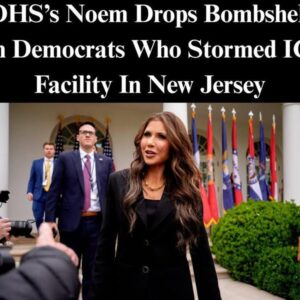FCC Chair to Brief Lawmakers on Media Ownership and Regulatory Concerns
Federal Communications Commission (FCC) Chairman Brendan Carr is set to meet with members of the Republican Study Committee this week to discuss regulatory concerns involving a major investment in local radio stations. The closed-door session is expected to focus on media consolidation and the recent acquisition of a significant number of radio assets by a firm tied to investor George Soros.
Overview of the Meeting
According to multiple sources, Carr’s presentation to lawmakers will cover the regulatory procedures surrounding the purchase of over 200 radio stations previously owned by Audacy, a leading U.S. broadcaster. The stations were acquired as part of a broader financial restructuring involving Soros Fund Management, which invested over $400 million in company debt during Audacy’s Chapter 11 bankruptcy process.
The acquisition has raised questions about foreign investment thresholds and the FCC’s approach to ownership approval.
Regulatory Process Under Scrutiny
Under current U.S. law, foreign ownership in broadcast companies is generally capped at 25% unless specifically approved by the FCC. Carr has previously testified that the FCC appears to have deviated from its standard process in this case.
“There are long-standing procedures in place when it comes to evaluating foreign ownership in media,” Carr said during a House Oversight Committee hearing earlier this year. “This transaction appears to bypass or fast-track some of those established protocols.”
FCC critics are concerned that the regulatory body may be setting a precedent by modifying or expediting its review process without a thorough public assessment.
Media Ownership and Public Interest
Lawmakers and public advocates alike have voiced interest in how large-scale investments in media entities—regardless of political leaning—could impact public access to diverse viewpoints. The debate centers around the role of media consolidation and the responsibility of federal regulators to maintain transparency and fairness in media oversight.
While some are focused on the influence of high-profile investors, others emphasize the broader need for maintaining public trust in local journalism, especially during election seasons when information access plays a key role in democratic engagement.
Stakeholder Perspectives
FCC Chairwoman Jessica Rosenworcel and her team have not publicly responded in detail to the concerns raised but have confirmed that all licensing and ownership transfers are reviewed in accordance with federal guidelines. The agency’s decision to approve the Audacy-related deal was made in the weeks leading up to the 2024 election and allowed the new investors to reach millions of listeners in various markets across the country.
Despite concerns from some lawmakers, others have urged caution in drawing conclusions without a complete understanding of the deal’s terms and the FCC’s internal review process.
Looking Ahead
As the media landscape continues to evolve and traditional broadcasters adapt to financial and technological changes, the role of regulators like the FCC will likely remain in the spotlight. Carr’s upcoming briefing is expected to include proposed strategies for improving regulatory transparency and ensuring that all future transactions are evaluated with consistency and public accountability.
Conclusion
The FCC’s handling of major media ownership changes is drawing renewed interest from lawmakers and the public. As more information becomes available, the focus remains on ensuring that broadcast regulations reflect fairness, protect diverse voices, and uphold the integrity of local journalism across the country.





